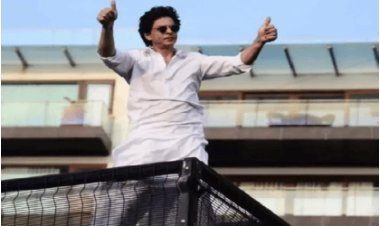Gen Z Embraces Y2K Fashion Trend with Enthusiasm
Y2K Fashion Trend Resurfaces, Fueled by Gen Z's Enthusiasm

New York, 2023 - The fashion world is witnessing a resurgence of Y2K fashion, and Gen Z is at the forefront, embracing the trend with great excitement. From the demise of skinny jeans to the reinvention of cargo pants, tights, and baby tees, the early 2000s aesthetic has captured the attention of young consumers.
In offices, college interns and young professionals are sporting wide-leg pants, defying the once-dominant skinny silhouette. Retro hair accessories like butterfly clips and styles such as mesh tops, mini skirts, and vibrant, colorful outfits reminiscent of the iconic looks from Disney Channel shows circa 2004 are becoming popular choices.
The Y2K trend has experienced a remarkable resurgence, thanks in large part to the influence of social media platforms like TikTok. As the world emerges from pandemic lockdowns, consumers are eagerly adopting these nostalgic fashion statements. What started with small accessories and straight-leg jeans has now evolved into full denim ensembles, cargo and flared pants, and anything that shimmers.
Casey Lewis, a trend analyst based in New York, has been observing numerous micro-trends, often labeled with the suffix "core," over the past few years. Examples include "Barbiecore" and "mermaidcore," featuring vibrant pinks and ocean-inspired colors, as well as frilly materials. Another trend gaining traction is the youthful twist on "Beach Grandpa," characterized by oversized cardigans and linen outfits.
According to Lewis, Gen Z shows no signs of slowing down in revisiting these old trends, leaving fashion experts wondering when they will move on to the next unexpected fad.
Retailers, from high-end establishments like Nordstrom to discount and fast-fashion chains, are capitalizing on the Y2K trend, actively promoting these styles through their campaigns and stocking their shelves accordingly. Consumers are responding enthusiastically, driving significant sales growth in various Y2K-inspired fashion items.
Data from retail tracking firm Circana reveals an 81 percent increase in sales of women's cargo pants from January to May, the latest available data. Retail giants H&M and Zara report success with biker jackets, denim outfits, and crop tops. Chinese fast-fashion brand Shin, which caters to young women, notes a tripling of sales in baby t-shirts, making them an extremely popular style in 2023.
The demand for flared pants, corset tops, metallic-colored dresses, and bright velour women's tracksuits has surged, reminiscent of the clothing choices of socialite Paris Hilton during her heyday. These trends fall under the umbrella of the "McBling era," overlapping with Y2K but emphasizing flashier items from brands like Juicy Couture and Baby Phat, the streetwear line popularized by TV personality and designer Kimora Lee Simmons, which made a comeback in 2019.
Celebrities, including model Bella Hadid, continue to influence these fashion trends, with their outfit choices scrutinized by fashion magazines and followers. Additionally, style inspiration emerges directly from consumers on social media platforms, where retailers curate runway-inspired conversations to engage with their target audience.
Major retailers like Macy's and Walmart are closely monitoring social media trends and analyzing consumer preferences to stay ahead of the curve. However, identifying which trends will resonate with consumers and lead to actual purchases can be challenging, according to Jake Bjorseth, founder of trndsttrs, an agency specializing in connecting companies with younger consumers.
Walmart, known for catering to younger shoppers, is accelerating its trend-spotting efforts to identify marketable trends quickly. Collaborations with A-listers such as Selena Gomez and partnerships with key influencers like Alix Earle are part of their strategy, although specific details are not disclosed.
Interestingly, while retailers target younger shoppers, many of these trends are not being bought firsthand. Instead, Gen Z is turning to each other's closets, fueling the growth of the resale market, which tripled by 2020, according to a study by Boston Consulting Group and French luxury resale site Vestiaire Collective. Affordability and sustainability are driving factors behind this shift in consumer behavior.
Young consumers like Yasmin Beckitt, a 22-year-old graduate student from Manheim, Pennsylvania, frequent local thrift stores and online resale platforms like Depop to find Y2K-inspired items such as backpacks and baggy jeans. Beckitt, who usually wears a hijab, embraces loose, flowy pants, skinny jeans, and mesh tops to stay cool during the summer. She draws inspiration from former Disney Channel stars like Selena Gomez and Hilary Duff for her personal style.
Popular TikTok influencer Aaliyah Bah, boasting over 2.5 million followers, also influences Beckitt's fashion choices. A Y2K-inspired look typically includes a mini skirt or shorts paired with a crop top, fishnet stockings, and knee-high boots.
While social media plays a significant role in trend propagation, retro hairstyles are also making a comeback. Tahlia Loveday, head stylist at a New York salon, observes a resurgence of '90s and Y2K trends, such as spiky updos and space buns, as well as bold color combinations. These styles cater not only to Gen Z but also to millennial customers.
Christine Claesi-Zumo of Cercana emphasizes that for Gen Z, these trends are entirely new and exciting. While some perceive them as cyclical or recurring, for Gen Z, it's an entirely novel experience.

 chandni
chandni 



